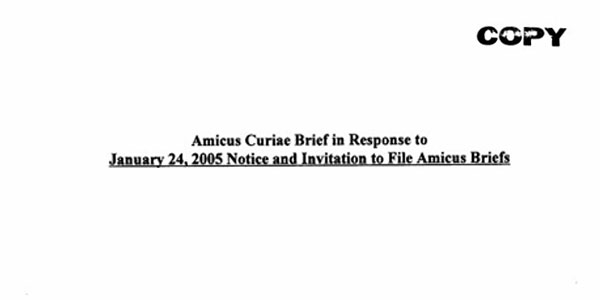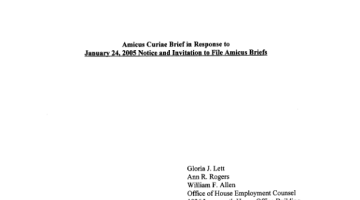In response to the January 24, 2005 Notice and Invitation to File Amicus Curiae Briefs (“Notice”) issued by the Board of Directors of the Office of Compliance (“the Board”), the Office of House Employment Counsel (“OHEC”) respectfully submits the following brief.
I. Statement of Interest
As the legal counsel for many employing offices covered by the Congressional Accountability Act (“CAA”), OHEC has an interest in the Board’s determination of the legal issues presented in the Notice. In particular, OHEC is interested in the maintenance of uniform legal standards in Section 408 judicial proceedings, Section 405 administrative hearings, and Section 406 Board appellate review. Such uniformity provides guidance to employing offices regarding compliance with the CAA, creates for both covered employees and employing offices predictability in the administration ofjustice under the CAA, and, most importantly, reduces forum shopping by Complainants based upon differences in interpretation of the CAA. Because the CAA was intended to create a “dual track” for vindication of employee rights, not a “dual system” of justice, the adjudication on the merits of any CAA claim should never depend upon the track selected.
The CAA directly addresses these concerns in Section 405(h), which requires hearing officers to “be guided byyudicia/ decisions under the laws made applicable [by the CAA] and by Board decisions.” 2 U.S.C. § 1405(h) (emphasis added). The Board, in turn, is similarly constrained, by the limited nature of its review, to follow judicial decisions on the appropriate legal standards to be employed in CAA cases. See 2 U.S.C. § 1406(c). If a hearing officer has been properly guided by judicial decisions, then a hearing officer’s adoption of a particular legal standard would never be “arbitrary, capricious, an abuse of discretion, or otherwise not consistent with the law.” Id. Congress further safeguarded judicial decisions on the underlying employment laws by requiring the Federal Circuit to “set aside a final decision of the Board if it is determined that the decision was … otherwise not consistent with law….” 2 U.S.C. § 1407(d)(1). Rejection by the Board or hearing officer of a well-established legal standard would be inconsistent with the CAA and, thus, would likely be disapproved by the Federal Circuit.

